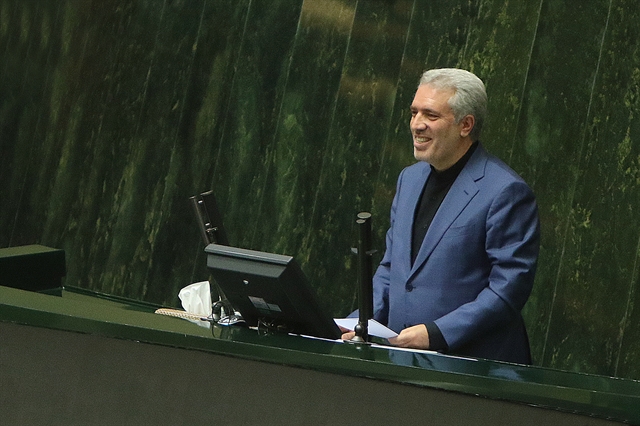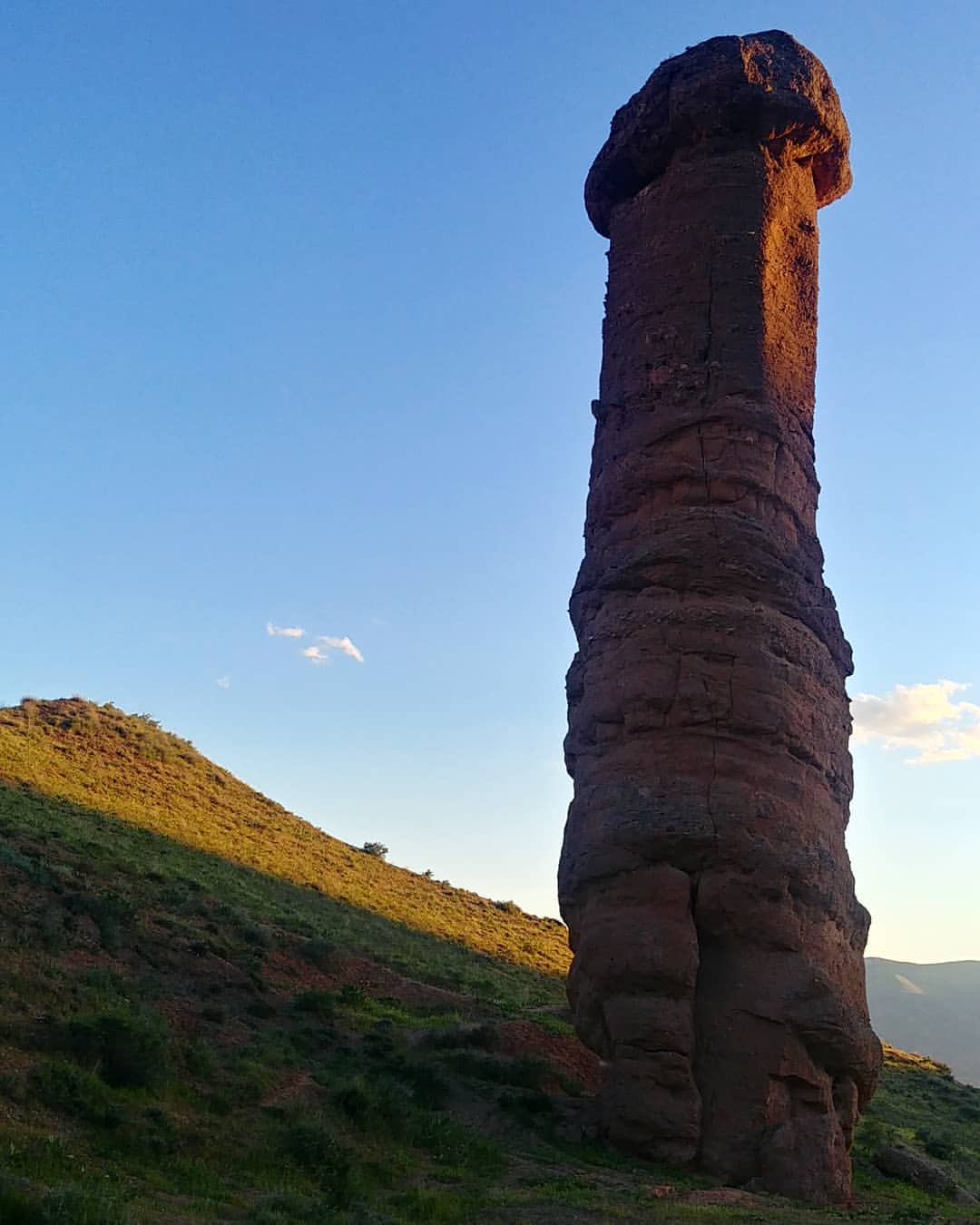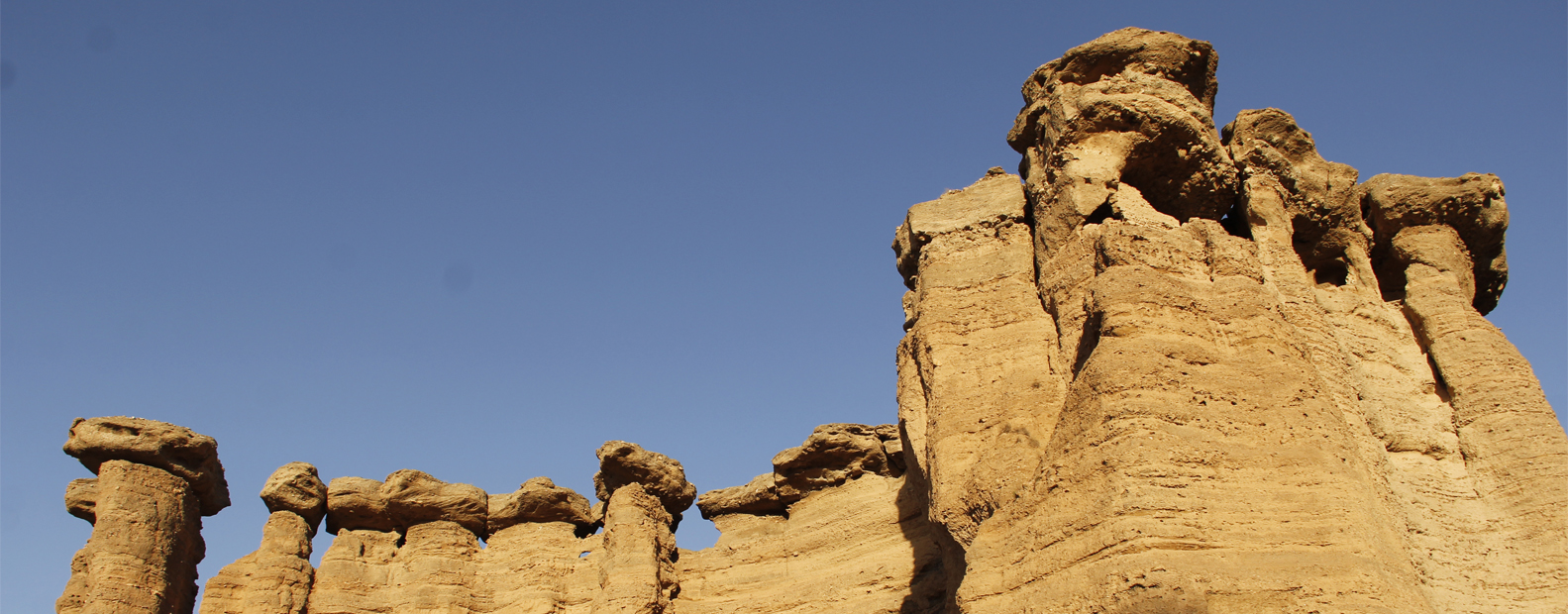به گزارش ایسنا، در ابلاغیه علیاصغر مونسان» ـ وزیر میراث فرهنگی، گردشگری و میراث فرهنگی - آمده است: در راستای اجرای تبصره (۱) ماده (۱۰) آییننامه ایجاد، اصلاح، تکمیل، درجهبندی و نرخگذاری تاسیسات گردشگری و نظارت بر آنها مصوب هیات وزیران مورخ ۰۴/ ۰۶/ ۱۳۹۴ و با توجه به اهمیت و ضرورت ساماندهی اقامتگاههای بومگردی کشور از مصادیق تاسیسات گردشگری مندرج در بند (ج) ماده (۱) آییننامه فوق، ضوابط بهرهبرداری، ارزیابی و درجهبندی اقامتگاههای بومگردی برای اجرا ابلاغ شد. »
Zanjan Tourism Guide

معاون گردشگری زنجان گفت: بر اساس ماده 3 آئین نامه کمیته ملی طبیعت گردی مبنی بر تشویق و ترویج فرهنگ طبیعت دوستی و طبیعت گردی ، خانه طبیعت گردی زنجان راه اندازی می شود.
به گزارش روابط عمومی اداره کل میراث فرهنگی، صنایع دستی و گردشگری استان زنجان، علی اکبر شرفی در کمیته طبیعت گردی استان روز گذشته با اعلام خبر فوق، ادامه داد: با عنایت به اهمیت و نقش جایگاه اکوتوریسم در توسعه پایدار گردشگری و تعامل با تشکل های مردم نهاد و بخش خصوصی در حوزه برنامه ریزی و ت گذاری فعالیت های طبیعت گردی ضروری می نماید بنابراین مرکزی جهت هماهنگی و تشریک مساعی تشکل ها و سازمان ها در راستای حفاظت از جاذبه های طبیعی ، آگاه سازی مردم و گردشگران ایجاد می گردد که یکی از پیامدهای آن دست یافتن به توسعه پایدار است.
ادامه مطلبضوابط اقامتگاههای بومگردی» با دستور وزیر میراث فرهنگی، گردشگری و صنایع دستی ابلاغ شد. این ضوابط، شاخصی برای ارزیابی و تعیینکننده درجه و قیمت این اقامتگاهها خواهد بود.
اگر صنعت هوانوردی را یک کشور فرض کنیم، قطعا جزو ۱۰ کشور دارای بالاترین آلایندهی دیاکسیدکربن در جهان قرار میگرفت. میزان انتشار گازهای هوایی از سال ۲۰۰۵ تا کنون ۷۰ درصد افزایش یافته و با افزایش تقاضای پرواز در کشورهای ثروتمند و فقیر، پیشبینی میشود تا سال ۲۰۵۰ میزان انتشار این گازها بین ۳۰۰ تا ۷۰۰ درصد افزایش یابد.
ادامه مطلب
معاون گردشگری در نشست با سفیر اتریش در تهران که در محل معاونت گردشگری برگزار شد، مقدمات برگزاری سمپوزیوم گردشگری کوهستان و طبیعتگردی» در تاریخ 3 و 4 مهرماه و نیز برپایی سومین کارگروه فنی همکارهای گردشگری ایران و اتریش» در تاریخ 2 مهرماه سال جاری در تهران را بررسی کرد.
ادامه مطلببهگزارش میراثآریا به نقل از روابطعمومی ادارهکل میراثفرهنگی زنجان، قطار گردشگری کاروان عشق رجا یکشنبه ۱۷ شهریورماه باهدف شرکت مسافران در مراسم عزاداری حسینیه اعظم زنجان ساعت ۹ صبح از تهران حرکت کرده و ساعت ۲۰ از زنجان مراجعت میکند.
ادامه مطلب
رئیسجمهوری با استناد به اصول ۸۷ و ۱۳۳ قانون اساسی جمهوری اسلامی ایران و با عنایت به رای اعتماد روز سهشنبه ۱۲ شهریورماه مجلس شورای اسلامی، طی حکمی علیاصغر مونسان را بهسمت وزیر میراثفرهنگی، گردشگری و صنایعدستی منصوب کرد.
ادامه مطلب
مجلس شورای اسلامی با 163 رأی موافق از مجموع 255 نماینده حاضر به دکتر علیاصغر مونسان برای تصدی وزارت میراثفرهنگی، گردشگری و صنایعدستی رأی اعتماد داد تا آخرین رئیس سازمان میراثفرهنگی، نخستین وزیر وزارتخانه جدید باشد.
ادامه مطلبمدیرکل آموزش و مطالعات گردشگری وزارت میراثفرهنگی گفت: اام در برگزاری دوره آموزشی کوتاهمدت "مدیریت تخصصی اقامتگاه بومگردی" و دوره آموزشی کوتاهمدت "کارکنان اقامتگاه بومگردی" به ادارات کل 31 استان کشور ابلاغ شد.»
ادامه مطلبسئول امور موزه های اداره کل میراث فرهنگی استان زنجان گفت: پروژه بلیت الکترونیکی برای پایگاه میراث جهانی گنبد سلطانیه و موزه باستان شناسی و مردان نمکی زنجان از روز دوشنبه چهارم شهریور ماه اجرایی شد.
به گزارش روابط عمومی اداره کل میراث فرهنگی، صنایع دستی و گردشگری استان زنجان، پرستو قاسمی صبح امروز پنجم شهریور ماه در زنجان با اعلام خبر فوق ، ادامه داد: زنجان سیزدهمین استان کشور است که به سامانه بلیت الکترونیک پیوست و از این پس بازدیدکنندگان پایگاه جهانی سلطانیه و موزه باستان شناسی و مردان نمکی زنجان می توانند از این سامانه بهره مند شوند.
ادامه مطلب
In different parts of Iran like Mahneshan County in Zanjan Province, there is phenomenon named Doodkesh-e Jen which is considered as one of the tourist attractions of the area. Doodkesh-e Jen is located 20 kilometers from Mahneshan County and 120 kilometers from Zanjan. In geology, this natural phenomenon is called "Hoodoo". Mahneshan | Zanjan.
در جغرافیا به ستونی از رسوبات آبرفتی که در زیر تختهسنگی قرار گرفتهاست و اطراف آن بر اثر عمل فرسایش از بین رفته است دودکش جن گفته میشود. دودکشهای جن، کوهسرها یا منارههای سنگی نازک و بلندی هستند که از زیر یک حوضچه خشک و بایر یا زمین سنگلاخ و بدبوم بیرون آمدهاند. این دودکشهای زمینشناختی که ممکن است از ۱/۵ تا ۴۵ متر بلندا داشته باشند.

12 kilometers to the east of Mahneshan there is a ridge with an average height of 12 meters which is more eye catching than the Ghezel Ozan River. This ridge consists of some colossal columns which look like huge mushrooms nicknamed as the jinni’s chimney. The historic castle of Behestan also known as Kohan Dezh (old castle) does not have a specific age and no one has determined a specific date for its establishment. Some have attributed it to Medes and some others have related it to Achaemenids. Some experts on the other hand date it to 11 century AD about the time when Muslims first arrived in Iran. Nevertheless, Behestan castle has been uniquely carved in mountain. The room were created by removing the rubbles and rocks and according to the number of rooms, many corridors and stairs were made. Unfortunately, natural and human factors have brought about great damage to the castle. Due to the erosion of the castle, it is impossible to reach its upper rooms and parts. Like many other castles Behestan castle is also a fortress used by former kings to protect local people against enemies.

دکتر رئیسجمهوری در حکمی علیاصغر مونسان را به سرپرستی وزارت میراثفرهنگی، گردشگری و صنایعدستی منصوب کرد.
به گزارش پایگاه اطلاع رسانی دولت، در حکم رئیسجمهوری خطاب به دکتر مونسان آمده است: بر اساس اصل ۱۳۵ قانون اساسی و در اجرای مصوبه شماره ۲۶۱/۴۲۷۶۷ مورخ ۱۳۹۸/۵/۲۶ مجلس شورای اسلامی، به موجب این حکم شما را به سرپرستی وزارت میراثفرهنگی، گردشگری و صنایعدستی منصوب مینمایم.
انتظار دارد بر اساس مصوبه یادشده با بهرهگیری از همه امکانات نسبت به ایجاد وزارتخانه جدید با ساختار مناسب اقدام نمایید.
امید است با عنایات الهی در خدمت به ملت شریف ایران و نظام مقدس جمهوری اسلامی، با رعایت اصول قانونمداری، اعتدالگرایی و منشور اخلاقی دولت تدبیر و امید موفق باشید.»

Zanjan, July 16, IRNA –Soltaniyeh Dome is the 3rd biggest brick dome in the world and the Mausoleum of Ilkhan Oljaytu highlighted accomplishment of Iranian architecture and is the top three huge historic buildings in the world.
The structure is a very exquisite mosque which is well-known in the world from the viewpoint of architecture, interior design and space. Soltaniyeh Dome.
In north-western Iran’s city of Soltaniyeh, which was briefly the capital of Persia’s Ilkhanid dynasty (a branch of the Mongol dynasty) during the 14th century, stands the Mausoleum of Oljaytu, its stunning dome covered with turquoise-blue faience tiles. Constructed in 1302-12, the tomb of the eighth Ilkhanid ruler is the main feature remaining from the ancient city; today, it dominates a rural settlement surrounded by the fertile pasture of Soltaniyeh. The Mausoleum of Oljaytu is recognized as the architectural masterpiece of its period and outstanding achievement in the development of Persian architecture, particularly in its innovative double-shelled dome and interior decoration.
The dome is located 30 km east of Zanjan inside the rampart of the old city of Soltaniyeh. It is an octagonal building, each side of which is almost 80 meters. The Soltaniyeh Dome is built in the Arg city or old fortification of Sultaniyeh, the capital of Oljaytu, an Ilkhan ruler.
The old fortification was a plot of land with an area of hectares, encircled by a wall which was the characteristic of old cities. It is interesting to mention that the dome was used as a template in construction of the big dome of Florence, Italy. There are eight minarets around the dome, The structure is the oldest double-shell dome in Iran.
The dome is blue and is covered in turquoise blue faience. The inside roof of the rooms are decorated with colored bricks and plasterwork. There is a tall dome on each sides of the building which are about 120 meters each. On the upper part of the building, pavilions and rooms have been constructed. On the sides of the ceiling, Quranic verses and names of God have been written in beautiful manifest handwriting, which is both a symbol of Iranian art and also a sign of the submission of Iranians to the last divine religion.

Construction of the dome started in 1302 at the orders of Oljaytu in the Ilkhan capital and was completed in 1312, that is construction of the building took almost 10 years, ranking the structure among the biggest brick domes in the world.
The dome, which is the largest in the world after Santa Maria and Hagia Sophia, has three sections of the main entrance, mausoleum and crypt. The decoration and structure of the mausoleum is in fact a turning point in the architecture of that era, creating a new style in architecture distinct from that of the Seljuk era.

The building has eight doors, eight porches and eight minarets and includes dome, Torbat Khaneh (holy dust reservoir) and Sardab (ice cellar). Recognition of the exact time of religious performances is to be the only explanation of sundial creation in the building. The Soltaniyeh brick dome is the 3rd tallest dome in the world following Florence Santa Maria Cathedral and Istanbul Hagia Sophia.
The world architecture history has seen the first double shell designs in this structure decorated with rich patterns. The exterior shell of the dome has been covered with turquoise blue and ultramarine in the burl designs.
Types of tiling, painting on stucco, lattice brickwork, wooden and stony decoration, stucco and brick stalactite and the inscription with verses of the Quran and the Hadith have been employed in building decoration.
The head of the World Heritage Site of Soltanieh Dome on the occasion of the fourteenth anniversary of the global registration of Soltanieh's Dome, in an interview with IRNA correspondent added: "Soltanieh Yadgar is the period of the Ilkhanid in Iran, which was ranked as the seventh recorded country in the World Heritage List in the year 2005. The hand of Sultan Mohammad Khodabandeh was erected in the eighth century and has remained steady for about 735 years since its inception.
Mirsoussa Aniran added: "There are now a lot of historical, cultural, and natural monuments in the country that provide beautiful landscapes, but among them are indicators that are universal in terms of characteristics."

"Based on this, the global base of mechanisms, with the mechanisms, always examines the stacking of the building in terms of gypsum walled (the movements of the building throughout the year), which has so far not been the case, continued the head of the World Heritage Site of Soltanieh Dome.
"It is 14 years since the global registration of this important historical event in our country, and during this time not only the country but also for tourists all over the world, this dome is well-known and attracts many interested people every year.
https://en.irna.ir/news/83397705/Zanjan-s-Soltaniyeh-world-s-largest-brick-dome
خبرگزاری فارس، گروه استانها- زهرا رسولی: آش» یکی از خوراکهای اصیل ایرانی است که تقریباً در تمام کشور پخته میشود و شامل انواع مختلف از جمله آش رشته، آش ماست، آش شله قلمکار، آش جو، آش دوغ و… سادهترین آن آش رشته است که در واقع میتوان گفت در کل کشور حدود 400 نوع آش وجود دارد که به سبکهای مختلف پخته میشود.
با توجه به اصیل بودن آش به عنوان یک غذای ایرانی هر سال جشنواره ملی آش ایرانی در زنجان برگزار میشود، جشنوارهای که قدیمیترین جشنواره غذای ایران است و هر سال در قالب آن اقوام مختلف ایرانی از نقاط مختلف کشور اقدام به پخت آش و نمایش آن میکنند.
روال برگزاری جشنواره به این شکل است که اقوام مختلف به دعوت اداره کل میراث فرهنگی، صنایع دستی و گردشگری استان زنجان گرد هم آمده و اقدام به پخت آش کرده و به اجرای مراسم آئینی میپردازند.
دوره اول و دوم این جشنواره در فصل بهار و اردیبهشت ماه سالهای ۸۴ و ۸۵ در مجموعه تفریحی گاوازنگ برگزار شد اما پس از آن برگزاری جشنواره آش به فصل تابستان موکول شد، از همین رو سالهاست که این جشنواره در مردادماه برگزار میشود.
امسال نیز مطابق برنامهریزیهای قبلی قرار بود جشنواره آش از 21 تا 25 مردادماه برگزار شود، اما سپس در خبری متفاوت و چند روز مانده به برگزاری جشنواره اعلام شد که برگزاری آن به آبانماه موکول شده است و علت آن نیز تقارن جشنواره آش با جشنواره روستا اعلام شد.
*همین آش است و همین کاسه!
تنها چند روز پس از اعلام این خبر، دوباره اعلام شد که جشنواره آش در همان زمان قبلی یعنی مردادماه برگزار خواهد شد و زمان آن نیز از 22 تا 27 مردادماه خواهد بود.
ادامه مطلبچهاردهمین جشنواره ملی آش ایرانی، با وجود اعلام تغییر در زمان برگزاری، روز سهشنبه 22 مرداد ماه در زنجان آغاز به کار کرد.
به گزارش میراث آریا به نقل از روابط عمومی اداره کل میراث فرهنگی زنجان، یحیی رحمتی مدیرکل میراث فرهنگی استان در این خصوص گفت: به صلاحدید مدیریت عالی استان، در راستای استفاده از زیرساختهای جشنواره ملی روستا، صرفهجویی در هزینهها و نیز تأکید بر حفظ زمان برگزاری، این جشنواره ملی روز گذشته در زنجان آغاز به کار کرد.»
ادامه مطلب
What a sad story.
مدیرکل میراث فرهنگی استان زنجان گفت: بعلت توالی جشنواره های تابستانی در "زنجان؛شهر جشنواره ها" و در راستای استفاده از تمامی فرصت های موجود برای جذب گردشگر ، با هدف توزیع مناسب رویدادهای گردشگری چهاردهمین جشنواره ملی آش ایرانی آبانماه سال جاری در زنجان برگزار می شود.
ادامه مطلبدر پرداختن به حوزه گردشگری، نباید اسیر اعداد شد. نمیتوان تاثیر افراد را فراموش کرد، زیرا یکایک آنها، قلب تپنده گردشگری هستند. سازمان بینالمللی گردشگری در کتابی با عنوان داستانهای گردشگری: داستان من، جامعه من، آینده ما» سرگذشت کسانی را روایت میکند که برای توسعه گردشگری و ایجاد تغییری مثبت در اجتماع پیرامون خود کوشیده و لحظات به یاد ماندنی برای گردشگران ساختهاند. این کتاب، بازتاب تکاپوی افرادی است که ظرفیتهای جوامع خود را خلاقانه بارور ساخته و تاریخ و سنتهای سرزمینشان را احیا کردهاند تا از آنها سنگ بنایی برای آینده بسازند. ۲۸ روایت از سراسر جهان در این کتاب گنجانده شده است. گروه اقتصاد بینالملل رومه دنیایاقتصاد» هر هفته، یکی از آنها را با شما به اشتراک میگذارد.
ادامه مطلبدر پرداختن به حوزه گردشگری، نباید اسیر اعداد شد. نمیتوان تاثیر افراد را فراموش کرد، زیرا یکایک آنها، قلب تپنده گردشگری هستند. سازمان بینالمللی گردشگری در کتابی با عنوان داستانهای گردشگری: داستان من، جامعه من، آینده ما» سرگذشت کسانی را روایت میکند که برای توسعه گردشگری و ایجاد تغییری مثبت در اجتماع پیرامون خود کوشیدهاند و لحظات به یاد ماندنی برای گردشگران ساختهاند. این کتاب، بازتاب تکاپوی افرادی است که ظرفیتهای جوامع خود را خلاقانه بارور ساخته و تاریخ و سنتهای سرزمینشان را احیا کردهاند تا از آنها سنگ بنایی برای آینده بسازند. ۲۸ روایت از سراسر جهان در این کتاب گنجانده شده است. گروه اقتصاد بینالملل رومه دنیایاقتصاد» هر هفته، یکی از آنها را با شما به اشتراک میگذارد.
ادامه مطلبدر پرداختن به حوزه گردشگری، نباید اسیر اعداد شد. نمیتوان تاثیر افراد را فراموش کرد؛ زیرا یکایک آنها، قلب تپنده گردشگری هستند. سازمان بینالمللی گردشگری در کتابی با عنوان داستانهای گردشگری: داستان من، جامعه من، آینده ما» سرگذشت کسانی را روایت میکند که برای توسعه گردشگری و ایجاد تغییری مثبت در اجتماع پیرامون خود کوشیده و لحظات بهیاد ماندنی برای گردشگران ساختهاند. این کتاب، بازتاب تکاپوی افرادی است که ظرفیتهای جوامع خود را خلاقانه بارور ساخته و تاریخ و سنتهای سرزمینشان را احیا کردهاند تا از آنها سنگ بنایی برای آینده بسازند. ۲۸ روایت از سراسر جهان در این کتاب گنجانده شده است. گروه اقتصاد بینالملل رومه دنیای اقتصاد» هر هفته، یکی از آنها را با شما به اشتراک میگذارد.
ادامه مطلب
- رویای بیت کوین Bitcoin Dream
- پرسش و پاسخ وردپرس
- سایت کیم کالا فروشگاه اینترنتی
- Lotus Water
- Psychology
- سایه وارونه
- داده پردازی نرم افکار
- اپیکیشن نت مانی net money
- مرکز تخصصی گچبری و قالبسازی آذین
- بیوگرافی
- ابوالفضل بابادی شوراب
- گروه هنری اولین اکشن سازان جوان
- اقیانوس طلایی
- .:: تنفّس صــــبح ::.
- شین نویسه
- خبر
- شهدای مدافع حرم
- پایکد
- نقاشی کشیدن
- درمان مو
- کبدچرب
- Sh.S
- نمونه سوالات استخدامی بانک تجارت (فروردین 1400)
- رسانه ارزهای دیجیتال و صرافی Coinex
- مرکز ماساژ در تهران